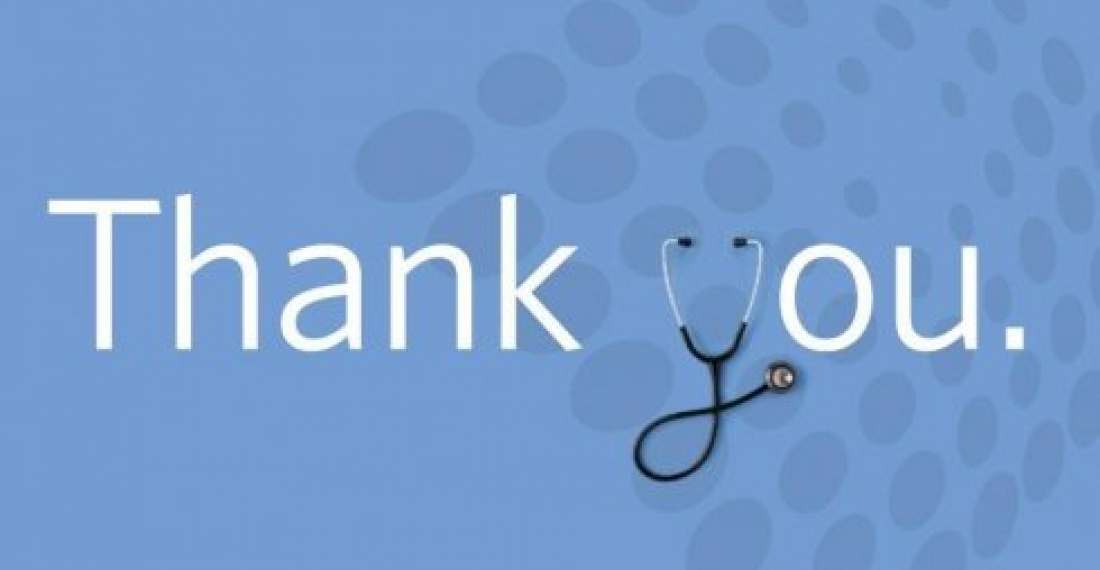Health and care workers are operating at exceptionally high levels to keep the COVID-19 pandemic under control. On UN World Health Day 2020, William Murray speaks to three healthcare professionals about how to take the pressure off those currently working on the frontline.
As we mark UN World Health Day, it's especially important that we acknowledge the hard work being done by all those working in healthcare during the current pandemic. Whether you are living with a healthcare worker, working within government, or simply trying to do your bit from home, there are a number of things that you can do to mitigate stress at this difficult time.
Speaking in a personal capacity, Dr Kirsty Licence, a Consultant in Public Health based in Scotland, emphasised that a "little recognition after a long day's work goes a very long way". Dr Licence reminded Commonspace.eu that health and care workers are having to deal professionally and emotionally in abnormally high stress environments with a heightened number of deaths, whilst at the same time worrying about their own nearest and dearest. Dr Licence said that she believes managing uncertainty is the most stressful aspect of the current crisis:
"Everybody is working in an environment where we don't know all the answers. We know some of the answers - and in healthcare, you are always working with a little bit of uncertainty - but at present, the level of uncertainty is magnified."
She provided a number of considerations for those living with health and care workers to keep in mind:
- It is important to allow them that little bit of time for recuperation when they get home. Think about how you can make that space around someone as relaxed as possible after a long and tiring day.
- Some of them will want to talk about stressful things that have happened at work whereas others will prefer to keep it to themselves.
- "Being physically looked after is important, but it is also important to acknowledge that a lot of people find pleasure in routine tasks like cooking." We must be sensitive of the different ways people will handle their stress.
In addition, Dr Licence argued that "care is a huge continuum" and that stress is not limited to the doctors and nurses on 'the frontline':
"Intensive Treatment Unit [ITU] professionals are very much in the spotlight, but there is a huge army of community and social care workers that are sustaining the vast majority of people at home, and looking after people that are very vulnerable... this is a huge group of often underpaid people, who are rarely as thanked or appreciated as those working in different settings."
She summarised by saying:
"I think that overall it's very difficult for people to sustain such a very emotional and physical intensity of work without a level of appreciation and recognition."
Separately, Dr Anne van Leeuwen, an Accident and Emergency specialist based in The Hague, noted that his A&E department had been especially quiet since the spread of the virus. He is concerned that people may be scared to go to the doctor even when they are in need serious of medical attention, fearing that they will put additional stress on the healthcare system. Dr Van Leeuwen suggested that people shouldn't be afraid to seek normal medical attention if something is wrong with them, as "this could lead to big problems down the line". By going to the doctor where necessary, people can avoid complications that would put further stress of healthcare providers.
In another conversation, Professor Allyson Pollock, Director of the Newcastle University Centre for Excellence in Regulatory Science, put the onus on leaders to relieve pressure on healthcare workers, telling Commonspace.eu that:
"I think people have been amazing...but [governments] are failing at some of the fundamental things that they should be doing and are within their power."
She argued that certain governments are not doing enough to follow guidelines, such as when people should be going back to work, which makes life more difficult for the healthcare sector:
"If governments are not following the guidelines set by the WHO [World Health Organization], they need to be giving good reasons as to why not."
On behalf of Commonspace.eu, we would like to thank all those that are working in the health and social care sectors for keeping us safe at this very difficult time. It is essential that we do not forget that those working against the pandemic are not limited to doctors and nurses, and include essential ancillary workers, such as cleaners, janitors, secretarial staff and many others.
Note: All those referenced are speaking in a personal capacity.







